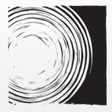Please send your proposals to marlene.valek(Replace this parenthesis with the @ sign)univie.ac.at till Friday, 7th of October!
Every proposal should include:
– the topic
– a short text about it and why we should pick it
– questions that might be interesting to discuss
– a few papers we could read (around 5)
– possible keynote speakers for the conference
The vote will be held on Friday, 14th of October. Please make sure that there is at least one proponent present for every proposal to present it in a few sentences.
Also, don’t feel like you already have to be an expert on the topic – we are all here to learn. (If you want to see what a proposal could look like, those from the two last years can be found >>>here<<< and >>>here<<<).
So please, if you are passionate about some topic and want it to become our main focus for the year, don’t hesitate to suggest it!
Proposals:
Attention and Salience
>>>FULL PDF<<<
The world is a pretty cluttered space full of objects and agents, events and information, noise and feelings. Thankfully, not all of them sweep our minds at once; we are highly selective in what we perceive, what we think about, and what we tend to ignore. Attention and salience are the two mean guides of this selection process: Attention is something that can sometimes be consciously controlled, sometimes is unconsciously drawn to something. Salience, on the other hand, determines what it is natural to pay attention to, what appears to us as striking, what separates the relevant aspects of a phenomenon from those we tend to pay less heed to.
Bullshit and Philosophy
>>>FULL PDF<<<
Disinformation lies at the center of currently prevalent subjects such as fake news, alternative facts and echo chambers. The issue of disinformation touches numerous integral domains of our society – science, health, politics. One important job of philosophy is to provide means to separate fact from fiction, truth from fabrication. I think we should take this job seriously and continue discussions on issues of disinformation. The first step in such a project would have to be identification, characterization and investigation of crucial concepts. One of these concepts that is particularly relevant to issues of disinformation is bullshit.
Philosophy, and analytic philosophy in particular, has become increasingly diverse with respect to the subject matters it deals with as well as the methodologies it employs—so much so that it has become harder and harder to pinpoint what it actually is that philosophers do. In light of this ever-increasing diversity of philosophy, it appears that subject matters and methodology can no longer be invoked as reliable demarcation criteria for understanding the boundaries of philosophy, both with respect to different traditions within philosophy, such as continental philosophy or pragmatism, as well as with disciplines that are supposed to lie outside of it. The more we become aware of this apparently underdetermined nature of philosophy, including its various traditions and sub-disciplines, the more we need to face the question of what (analytic) philosophy actually is
We reason all the time. We think about what to have for breakfast, how to get to the cinema the fastest, what will happen if I eat one more pizza before bed, etc. This reasoning takes two distinct forms: practical and theoretical. Both are super interesting because even though we do it all the time, we seem to have very little idea about how it works exactly! Is reasoning always and explicit mental process? Is it a process at all (and thus takes time), or does it work a-temporally? Are there any strict rules that govern reasoning, and differentiate good from bad reasoning? If yes, do the same rules apply for both practical and theoretical reasoning?
